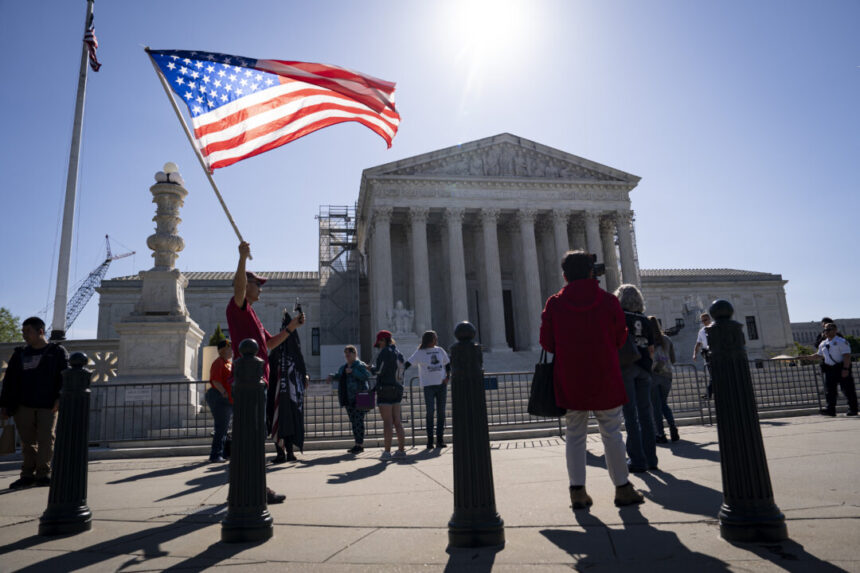The solicitor general confirmed during an April 16 hearing that the Department of Justice’s interpretation of a 2002 Enron-era obstruction law could potentially be applied to peaceful protestors, carrying a maximum sentence of 20 years in prison.
Solicitor General Elizabeth Prelogar informed the U.S. Supreme Court that the Biden administration believed the law used to prosecute Jan. 6 protester Joseph W. Fischer could also be used against other peaceful protesters.
Mr. Fischer appealed his case to the Supreme Court after being charged under Section 1512(c) of the Sarbanes-Oxley Act, a law enacted after the Enron scandal. Conservative justices expressed skepticism about applying this law to the events of Jan. 6 and the potential 20-year prison sentence it carries.
Justice Neil Gorsuch raised concerns about whether peaceful protests could lead to such severe penalties under the law. He questioned if actions like disrupting a trial, heckling at an event, or pulling a fire alarm could result in 20 years in federal prison.
Ms. Prelogar clarified that there are limitations to the law and not all scenarios would lead to charges or convictions. However, she admitted that intentional obstruction of proceedings could result in the use of this statute against protesters.
Justice Gorsuch further questioned if a peaceful protest that obstructed official proceedings indefinitely could be charged under the Sarbanes-Oxley Act. The solicitor general confirmed that if protesters intended to obstruct with consciousness of wrongdoing, they could face up to 20 years in prison.
Other justices also challenged the Justice Department’s interpretation of the law, with Justice Amy Coney Barrett questioning the emphasis on violence in applying the statute. Ms. Prelogar clarified that violence was not a requirement, but actions like assaulting a police officer would be considered unlawful conduct.
Justice Ketanji Brown Jackson expressed difficulty with the legal interpretation presented by the solicitor general, particularly regarding the broad application of the statute to various forms of obstruction.
Ms. Prelogar defended the interpretation, citing the language used by Congress in creating the statute and the intention to address loopholes like those seen in the Enron scandal.
Please rewrite this sentence.
Source link





